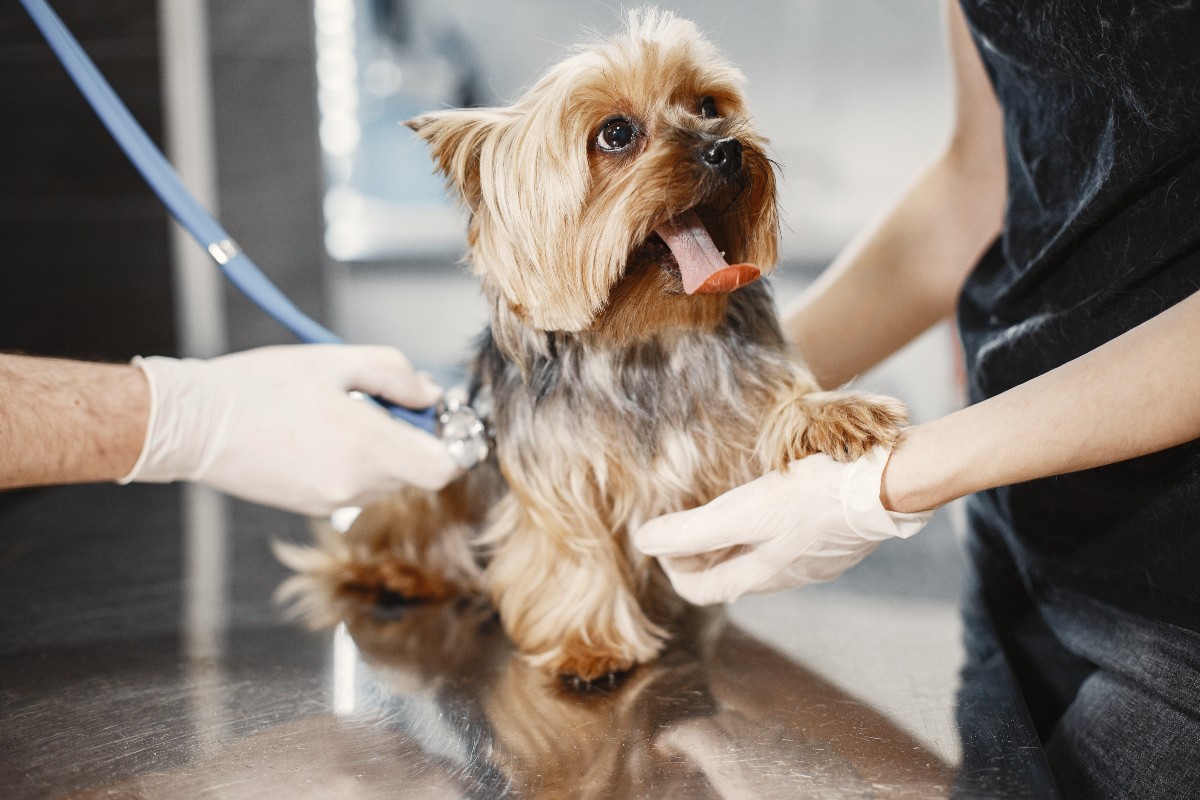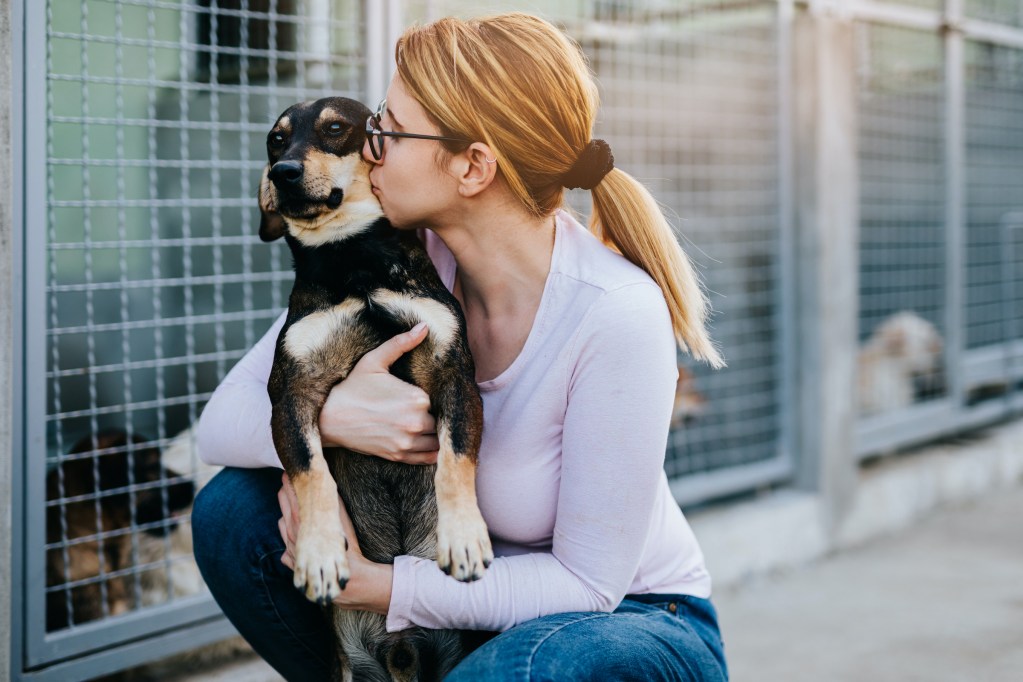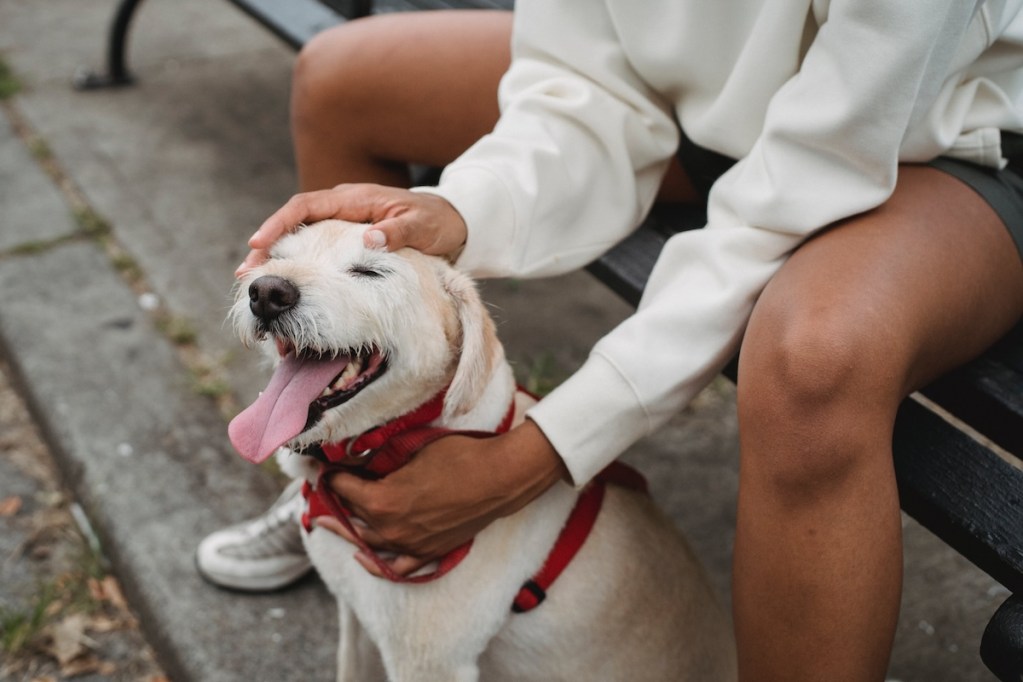It’s no secret that adopting a dog can change your life for the better. You’ll spend more time outdoors taking your dog for walks, so you’ll get plenty of exercise. Having a constant companion helps combat feelings of isolation and sadness, and taking on the responsibility of caring for another living being builds character.
More importantly, adopting a new dog from a shelter saves a sweet, innocent animal from euthanasia and helps fight puppy mills. But having a dog isn’t always a walk in the park. From unexpected expenses to puppy proofing your home, here are some things to know before adopting a dog.
1. You’re going to spend a lot of time outside — no matter the weather

It’s pouring rain outside, and all you want to do is settle down on the sofa and binge-watch your favorite show. That’s too bad; Max needs to go out, and he needs to go out now. Whether it’s 102 degrees with 90% humidity or the temperatures have dipped below 20 degrees, your pooch still needs to go out to use the bathroom and get in some exercise.
Ideally, most dogs should get an hour of exercise each day, and high-energy breeds like Siberian huskies need even more than that. Your duty as a pet parent is to take your dog out regardless of the weather, but always take precautions. Just like people, dogs can suffer from heat exhaustion and hypothermia, so keep walks brief or get exercise indoors during extreme weather.
2. You’re going to spend more money than you anticipated when adopting a dog

In 2020 alone, Americans spent over $103.6 billion on pet care, including costly health procedures. Spaying or neutering your dog at the earliest opportunity is essential to remove the risk of costly unwanted litters. While low-cost spaying and neutering options are available, it’s still an expense. Other common expenses are vaccinations, microchipping, and wellness visits. Still, the bulk of the cost, around $42 billion, is spent on dog food and treats. These days, people are more concerned than ever with feeding their dogs the most nutritionally dense, natural diet possible, and high-quality dog food isn’t cheap.
Another expense you should factor in is vet bills for injury and illness. Some breeds have genetic predispositions to a variety of health problems. If you adopt a German shepherd, for example, you could end up spending a small fortune battling his hip dysplasia. Other breeds tend to develop skin conditions, diabetes, or breathing problems. Young dogs are accident-prone and may injure themselves playing. And as your dog’s age increases, so does the risk of arthritis and cancer. While pet insurance can help offset the cost of vet bills, that’s another monthly expense to consider.
3. You’re going to spend a lot of time training your dog

For behavioral corrections to stick, you need to be consistent, so training your dog is a lifelong process. Whether you choose to send your dog to training or do it yourself, you’ll need to invest a ton of time in making sure your pooch doesn’t snap at strangers, other dogs, cats, or small children.
Just like people, dogs have their own distinctive personalities, which means they also have their own likes, dislikes, and fears. You’ll need to learn how to work with your dog to correct aggressive behavior, excessive barking, and other behavioral issues that may arise after you bring him home.
4. You’re going to have to make an important decision

Choosing a new dog is exciting, but there’s a lot more to that choice than you might think. While searching for the nearest dog breeder may be tempting, purebreds can cost several thousand dollars. But there are less expensive ways to get the dog of your dreams if you have your heart set on a certain breed.
You can contact breed-specific rescues and reach out to your local animal shelters to see if they have the breed you’re looking for. Adopting a shelter dog is much less expensive than purchasing a purebred one, and you’re saving a dog’s life, too.
5. You’re going to have to find the right dog for your lifestyle

We all lead busy lives, but some of us have a bit more time on our hands than others. If you work from home and can step away from your desk now and then, you might be able to handle a more high-energy breed than someone who works 12-hour days with an hour-long commute on top of it.
Consider your physical limitations, as well. If you’re slightly built, you probably won’t be able to gain control over a mastiff if you have to. You’ll also have to consider your home. Do you need to puppy-proof your space before you adopt? Do you have a yard large enough for your dog to run around in? Access to a dog park? All these questions are important to ask yourself before you adopt.
6. Your dog won’t feel at home right away

No matter how well you connect with your newly adopted dog, it will take time before they feel comfortable in their new home. This is normal and not a reflection of you or your actions. In fact, experts recommend that pet parents follow the 3-3-3 rule when setting expectations for a new rescue dog.
It can take three days before a dog feels safe enough to begin interacting and exploring in their new home, so until then, focus on meeting their basic needs while giving them space. After a few days, they’ll begin to get to know their surroundings, but after three weeks, they’ll start to get the hang of daily routines and schedules. Once three months go by, your dog will begin to feel at home in their forever home.
Adopting a dog can enrich your life in a way few things can, but dogs are more work than you’d expect. They’re also more expensive and time-consuming. Nonetheless, having a dog is also much more rewarding than you think. Take your time learning about different breeds, research costs and insurance options, and make sure your home is ready for your new pooch. If you know what to expect, adopting a dog will improve your life.




